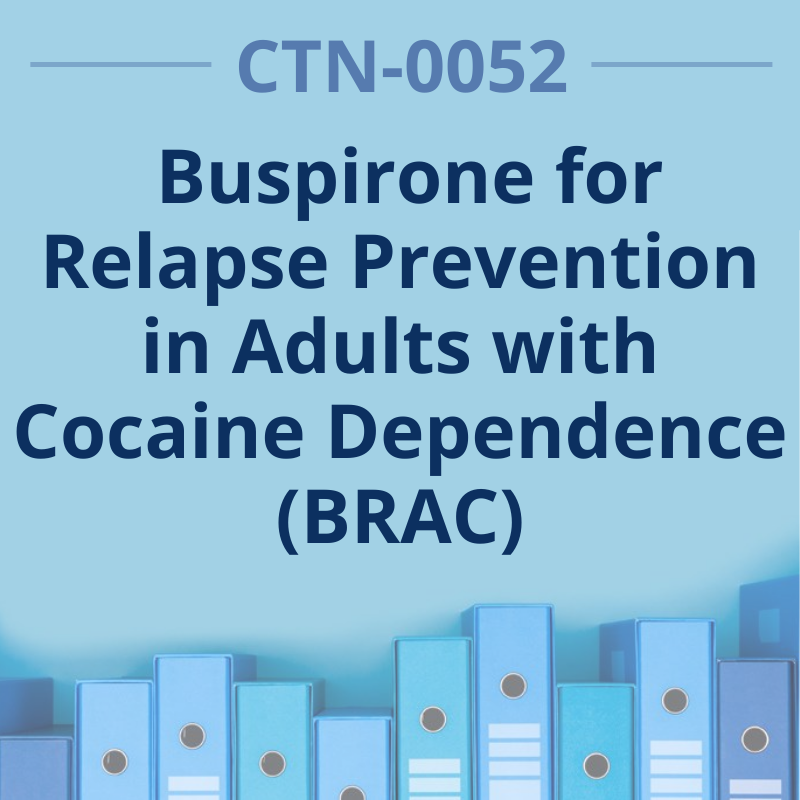CTN-0052: A Randomized Controlled Evaluation of Buspirone for Relapse-Prevention in Adults with Cocaine Dependence (BRAC)

T. John Winhusen, PhD
Lead Investigator
University of Cincinnati
Addiction Sciences Division
winhust@ucmail.uc.edu
The primary objective of this study is to evaluate the efficacy of of buspirone, relative to placebo, in preventing relapse in cocaine-dependent adults in inpatient/residential treatment who are planning to enter outpatient treatment upon inpatient/residential discharge. Secondary objectives include evaluating the impact of buspirone, relative to placebo, on other drug-abuse outcomes and on factors that may mediate buspirone’s efficacy as a relapse-prevention treatment.
Primary Findings
No significant treatment effects of buspirone on maximum continuous days of cocaine abstinence or days to first cocaine use were found. Additionally, in female participants (n=23), there was a significant treatment-by-time interaction effect, reflecting an increase in cocaine use by those receiving buspiron, relative to placebo, early in the outpatient treatment phase; a similar effect was not detected in males. These results suggest that buspirone is unlikely to have a beneficial effect on preventing relapse to cocaine use and, in fact, may worsen outcomes for women in particular.

Primary Outcomes Article: Winhusen TM, et al. Multisite, randomized, double-blind, placebo-controlled pilot clinical trial to evaluate the efficacy of buspirone as a relapse-prevention treatment for cocaine dependence. Journal of Clinical Psychiatry 2014;75(7):757-764.
Related Resources
- CTN-0052 Study Protocol
- Publications in the Library about CTN-0052
- Study data from NIDA Data Share
- ClinicalTrials.gov (NCT01641159)
- NIDA protocol page
Node Involvement
Lead Node(s):
All Participating Nodes: